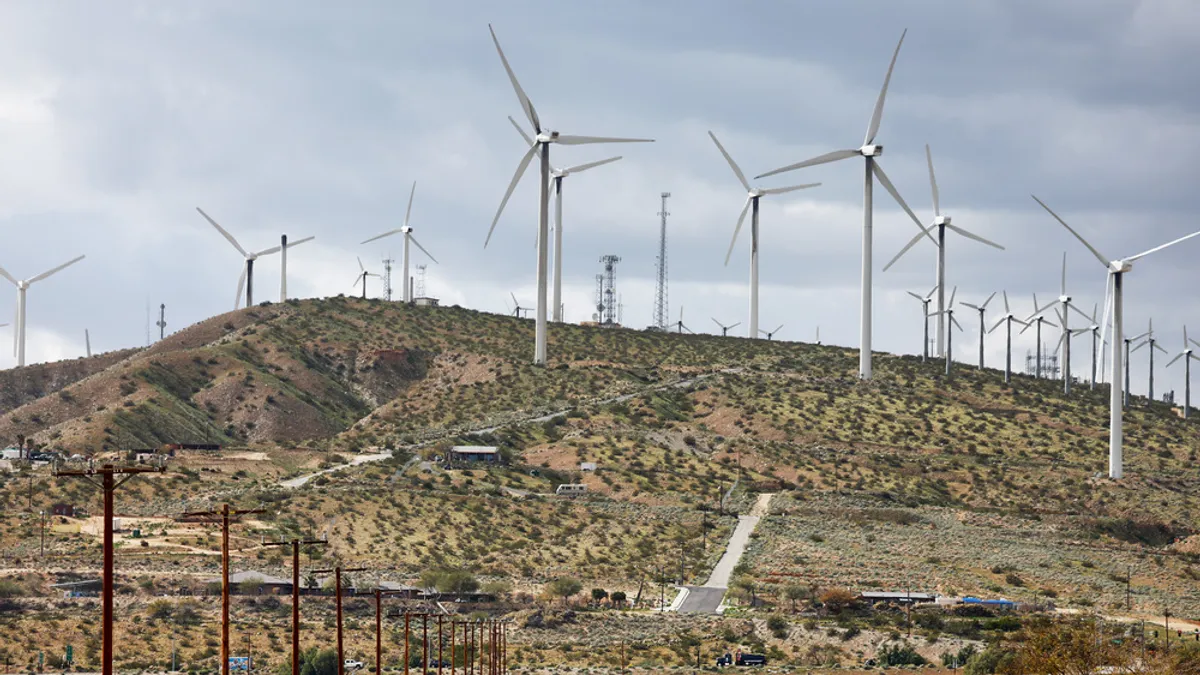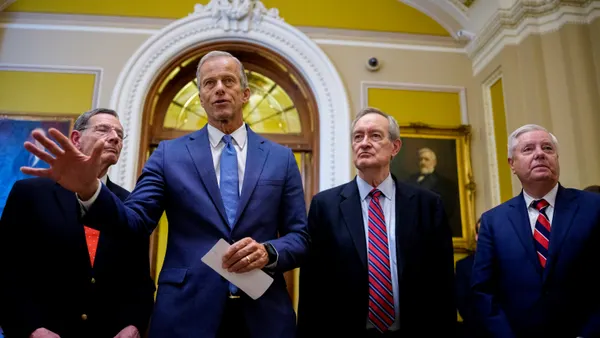Dive Brief:
- The 12 largest U.S. electric utility companies have lobbied unevenly for climate policy aligned with the goals in the Paris Agreement — sometimes working against their own interests, says a January report from corporate sustainability group Ceres.
- “We've seen a number of examples across Fortune 500 companies and in the utility world where companies are taking strong steps to decarbonize, but their lobbying is not aligned,” said Ceres managing director and report co-author Steven Rothstein. “They say they're for a policy, and then they advocate against it.”
- This disconnect is sometimes the result of companies failing to align internally on strategy, and sometimes the result of their membership in a trade association that opposes policies supported by the utility, Rothstein said in an interview.
Dive Insight:
Of the 12 electric utility companies the report examined, Ceres found that all had advocated for Paris-aligned climate policies in the last three years, but all had also opposed Paris-aligned climate policies in the same timeframe.
“If a company is advocating for something, but then they join a trade association that advocates against it — that's hurting their strategic plans,” Rothstein said. “But the answer isn't always to leave a trade group — though that may be appropriate in some cases.”
In one recent example, investor-owned utility Eversource parted ways with the American Gas Association last August over AGA’s lobbying against electrification.
Dan Bakal, Ceres’ senior program director of climate and energy, said this was a “significant development” for a “fairly sizable company.”
The utility companies studied by Ceres were American Electric Power, Dominion Energy, Duke Energy, Exelon, FirstEnergy, National Grid, NextEra Energy, Pacific Gas & Electric, Sempra Energy, Southern Company, WEC Energy Group, and Xcel Energy.
“For these companies that are primarily electric utilities, they do also have some gas distribution business, but a lot of them are choosing now to focus on the electric side of their business because they recognize that that's what's going to expand two to three-fold over the next couple of decades — whereas gas has a much more questionable, to declining, future,” said Bakal.
Bakal said that it was encouraging to see American Electric Power address this misalignment in an internal assessment, where AEP rated whether or not trade associations it belongs to are aligned with it on policy positions, partially aligned, or misaligned and “undermining AEP’s pursuit of its clean energy strategy,” the assessment said.
Ceres analyzed industry associations that included the AGA as well as the Edison Electric Institute and American Clean Power Association. In a comment, EEI spokesperson Sarah Durdaller said the group and its member companies have been the “strongest supporters” of the clean energy provisions in recent legislation like the bipartisan infrastructure law and Inflation Reduction Act.
“Already, 50 EEI member companies have set ambitious forward-looking carbon emission reduction goals, 40 of which are aiming for net-zero or equivalent by 2050 or sooner,” Durdaller said. “As the owners and operators of the energy grid, we also are making the investments needed to deliver resilient clean energy to sectors across the economy.”
While the report indicated “substantial inconsistencies” in the climate lobbying of utilities, Bakal said he thought it was encouraging that utilities have overall been “very supportive” of the Inflation Reduction Act.
“We do recognize that policies, sometimes at the state level, can be challenging — and we can't expect every company to just support every policy if it might not be a well-designed one, so there can be some disconnects,” he said. “But we do expect companies to be as transparent as possible, and be transparent about why a specific policy proposal might not work for them.”
Dominion Energy, Duke Energy and Southern Company did not respond to requests for comment about the Ceres report.














